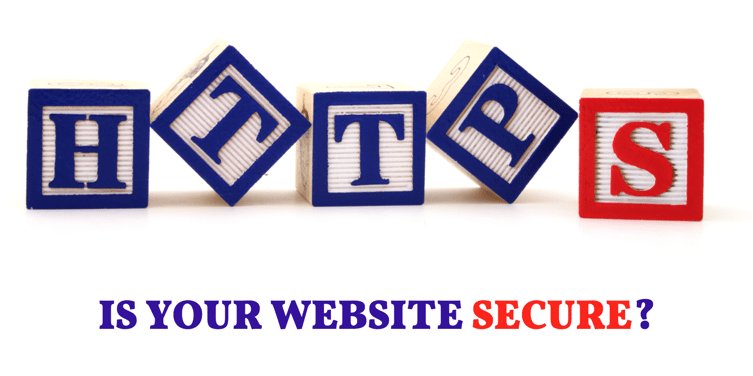From October 2017, Chrome has announced that in the next update, 62, users will be notified of ‘not secure’ websites. It will show the warning if websites have any forms, passwords, credit cards or any text input fields that the browsers deem are in need of HTTPS protection. This will also occur in incognito browsers.
Have you been noticing some websites start with “http://” and then sometimes they start with “https://” and have a green padlock nearby? If you see this padlock and green text, you’re on a secure website, and all data you put into that website is safe. This is what Chrome 62 is encouraging for all websites.
It’s time all websites got SSL (Secure Sockets Layer) certificates, ensuring the safety of visitors on the site. Essentially, SSL establishes an encrypted link between the web server and the visitor’s web browser. This safeguards all data (i.e. credit card details and passwords) keeping them private and secure between the server and browser.
Chrome has been rolling out the identification of ‘not secure’ sites over the last few updates, and already identifies all HTTPs sites with credit card fields, password and private data fields as ‘not secure’. This new update is expanding the scope to include and data fields on a website.
Why do you need HTTPs protection?
HTTPs provides three key layers of protection and ensures the website is ‘Secure’. This means customers can safely input data into your website without fear of it being passed on to a third party, or hacked.
The three layers are:
- Encryption. Ensuring all exchanged data is kept secure and private. This means, users on the website can’t be ‘overheard’ and their activities can’t be tracked over multiple pages, and information can’t be stolen
- Data integrity. No data can be modified or corrupted without being detected.
- Authentication. Proves to your customers they’re communicating with the right website. This, in turn, protects against cyber attacks, building user trust - which is a huge benefit for all businesses).
So what does this mean for your website?
It is now out of the question not to have an SSL certificate if you’re selling or collecting customer data online. A website declared ‘not secure’ will be affected. It will affect the sites SEO, meaning it won’t show so highly in organic search results and then if customers do manage to land on your site, it will affect how they see your website. It could have a detrimental effect on your site rankings, and as a result, sales. Is it worth the risk?
How do you know if you’re already secure?
An easy way to see this is to go to your website. Go to the task back, and is the ‘HTTPs’ is green, then the site is secure.
What is an SSL certificate?
SSL Certificates are small data files that bind a cryptographic key to a company, digitally. When awarded the certificate, and it is installed on a web server, the ‘padlock’ is activated and the https protocol and allows secure connections from a web server to a browser.
How can I get an SSL certificate?
E-commerce websites should automatically come with a certificate. If your website has a login or contact form, a certificate is a great investment to make in the next few weeks. There are sites that offer SSL certificates, some free, and some offer premium certificates, that offer higher levels of security and are good for more sensitive data, like credit card information.
Final thoughts
It is important to ensure you have a valid SSL certificate, and when you go to your website using Google Chrome, it is shown as secure in the taskbar. There are solutions, and if your website is not currently showing as ‘secure’ there is time to fix this.
If any of our customers are reading this and have any questions about their website, or would like to discuss getting an SSL certificate, we’re happy to help, schedule a time to speak to our sales team here.






